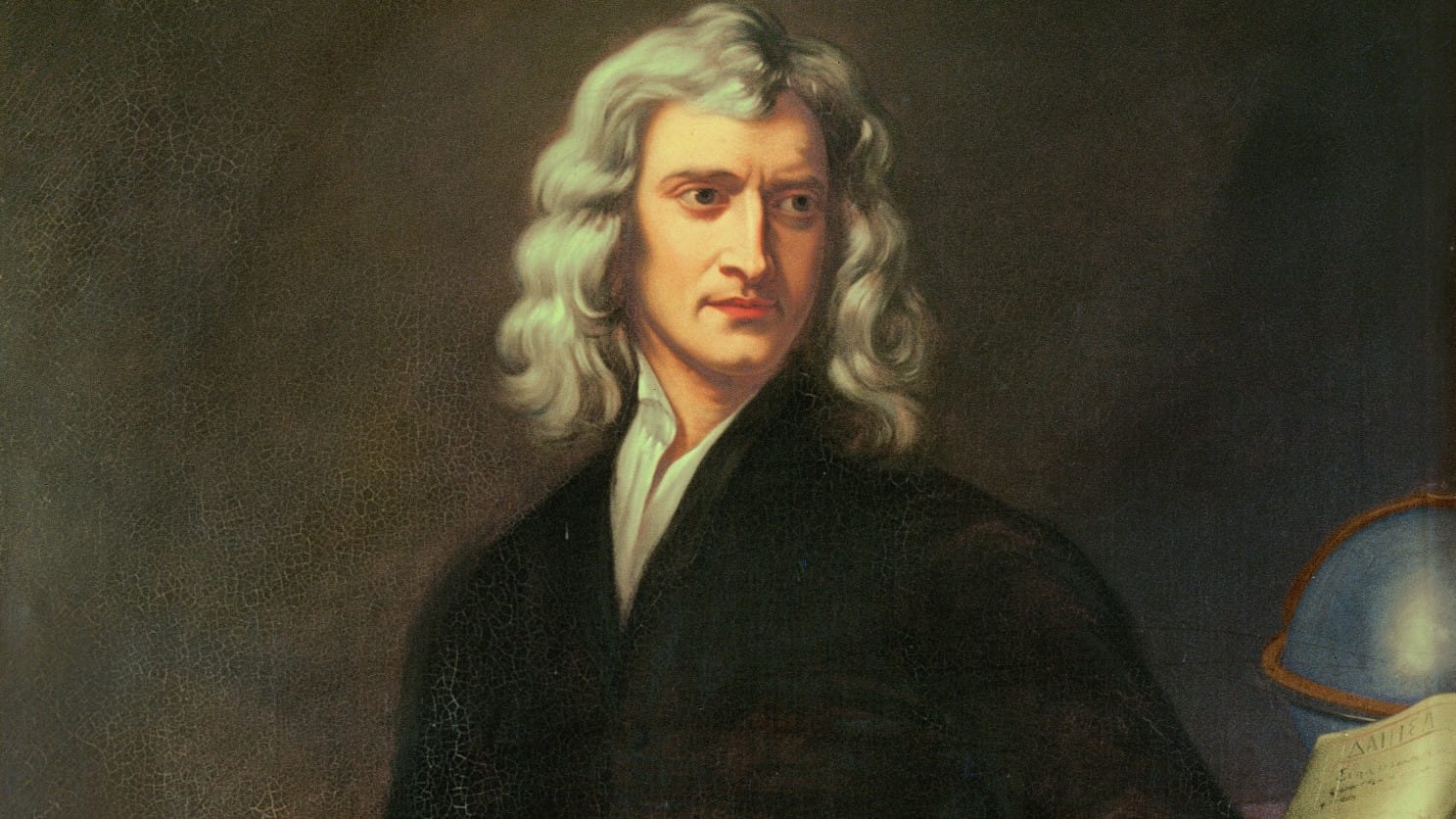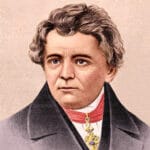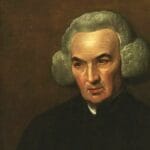Hey there, curious minds! Get ready for a wild ride as we dive deep into the life of Isaac Newton, the brainy dude who figured out gravity. In this thrilling article, we’ll be dropping mind-blowing facts that will make you see Newton in a whole new light. We’ll uncover his groundbreaking discoveries, like that famous gravity thing, but also reveal his lesser-known adventures in optics, calculus, and even alchemy! We’ll even clear up the mystery behind his two birthdays because, apparently, time travel was his thing. So, buckle up and let’s unravel the enigmatic tale of Isaac Newton, the genius who cracked the code of the universe.
Surprising Facts About Isaac Newton
Isaac Newton, the man who revolutionized our understanding of gravity, wasn’t just a brilliant scientist—he was a fascinating individual with a life full of surprising twists and turns. Here are some intriguing facts about this legendary figure that might just change how you see him:
- A Tiny Baby Who Defied the Odds: Picture this: Christmas Day, 1642. Isaac Newton enters the world prematurely, so small he could fit in a quart mug (or so the story goes). Nobody expected him to survive, let alone become one of history’s greatest minds! Talk about an underdog story for the ages.
- Calculus Crusader: Ever struggled with calculus in school? You can thank (or maybe blame) Newton for that. He developed this groundbreaking mathematical system, forever changing the way we understand motion, change, and a whole bunch of other complex stuff.
- The Alchemist’s Apprentice: Believe it or not, Newton wasn’t just about telescopes and equations. He was deeply fascinated by alchemy, the ancient practice of trying to turn lead into gold. Though seemingly magical, some experts believe his alchemical experiments might have influenced his scientific thinking in unexpected ways.
- Rivalry of the Scientific Titans: We all love a good rivalry, and Newton’s with Robert Hooke, another scientific heavyweight, was one for the books. They butted heads over everything from the nature of light to the invention of the reflecting telescope. These clashes, while sometimes heated, pushed the boundaries of science, leading to groundbreaking discoveries.
- A Mind Under Pressure: While Newton scaled incredible intellectual heights, he also faced inner battles. In his later years, he experienced mental health challenges, reminding us that even the most brilliant minds aren’t immune to the complexities of the human experience.
- The Apple Myth: Fact or Fiction? We’ve all heard the story: Newton sees an apple fall, and BAM! The theory of gravity is born. While the apple probably didn’t actually bonk him on the head, it likely served as a metaphor for how he began to question why things fall straight down.
- Faith and Reason Intertwined: Newton wasn’t just a man of science; he was a man of deep faith. He saw God’s hand in the laws of nature, believing that the universe had a divine order waiting to be deciphered.
- Money Man: Ever wonder who makes sure your coins are up to snuff? Well, back in Newton’s day, one of his jobs was Warden of the Royal Mint. He took this responsibility very seriously, even going undercover to catch counterfeiters!
- Cracking the Biblical Code: Newton was obsessed with understanding biblical chronology. He spent countless hours pouring over ancient texts, trying to create a timeline of events and reconcile them with his scientific understanding of the world.
- An Absent-Minded Professor Before It Was Cool: Ever get so lost in your work that you forget to eat or sleep? Newton could relate. Stories abound about his absent-mindedness, illustrating just how absorbed he was in his scientific pursuits.
These surprising facts paint a picture of Newton that goes beyond the stereotypical image of the serious scientist. He was complex, driven, and deeply human, reminding us that even the most brilliant minds are full of surprises.
What are 20 Facts About Isaac Newton?
We’ve already scratched the surface of who Isaac Newton was, but let’s dive a little deeper and uncover some more intriguing tidbits about this scientific giant. Imagine being born way back in 1642, so tiny and fragile that people weren’t sure you’d survive. That was Newton! It’s almost poetic that someone who redefined our understanding of the universe had such a precarious start in it.
And talk about a rebellious streak! Word on the street is that young Newton wasn’t too fond of his stepfather, even threatening to set fire to their house. Now, we don’t condone arson, but it shows you the kind of passion that simmered within him.
School wasn’t really his jam either, but when it came to building and tinkering – the man was a natural. It was like he could see how things worked just by looking at them. This mechanical genius eventually led him to the world of math, where he crossed paths with the brilliant Isaac Barrow. You could say Barrow opened the door to calculus for Newton, a field he’d go on to revolutionize.
But Newton wasn’t just a numbers guy. Oh no, he was fascinated by the mysteries of alchemy and devoured religious texts like they were the latest novels. This thirst for knowledge, this desire to understand the very fabric of existence, fueled his groundbreaking discoveries.
Speaking of groundbreaking, let’s talk about his work in physics and mathematics. Newton’s laws of motion and universal gravitation? Yeah, he came up with those, fundamentally changing how we view the universe and our place in it. Imagine the scientific world doing a collective gasp!
Here’s the thing about Newton, though. He was notoriously secretive about his work, often keeping his discoveries under wraps for years. It’s like he had this treasure chest of knowledge but was hesitant to share it with the world.
And while he’s celebrated for his contributions to physics, let’s not forget his work in optics. Newton’s experiments with light were just as revolutionary, revealing its true nature and laying the foundation for future advancements.
The scientific world back then was a bit like a high-stakes drama, and Newton’s rivalry with fellow genius Robert Hooke only added to the intrigue. These intellectual titans clashed and challenged each other, pushing the boundaries of knowledge in the process.
Despite his incredible intellect, Newton wasn’t immune to the struggles of the human mind. Later in life, he battled with bouts of depression and anxiety, reminding us that even the most brilliant minds are not invincible.
Of course, his achievements didn’t go unnoticed. In 1705, Queen Anne herself knighted him, a testament to his lasting legacy. And what a legacy it is! Newton’s laws of motion and universal gravitation are still taught in classrooms today, centuries after his death.
Here are a few more fascinating facts about the man:
- He managed to develop calculus all on his own, independent of Gottfried Leibniz, which is a mind-blowing feat in itself.
- His mathematical method of fluxions basically laid the groundwork for what we now know as differential calculus.
- Remember that story about the apple falling from the tree? While it makes for a good tale, it’s probably just that – a tale. It’s unlikely an apple played any real role in Newton’s discovery of gravity.
Newton’s story is a reminder that genius often comes with complexities. He was brilliant, yes, but also secretive, irascible, and at times, quite difficult. He was a man of contradictions, deeply religious yet fascinated by the mysteries of alchemy, a groundbreaking scientist who often shied away from the spotlight.
There’s still so much to learn about Isaac Newton, and researchers are constantly uncovering new insights into his life and work. So, if this glimpse into his world has sparked your curiosity, don’t hesitate to delve deeper. You never know what other fascinating discoveries await!
What are 5 Discoveries of Isaac Newton?
Isaac Newton, a name synonymous with genius, didn’t just make discoveries, he turned our whole understanding of the universe upside down! We’re talking game-changing insights that still echo through science today.
Let’s dive into five of his biggest hits:
- Gravity: It’s Not Just a Good Idea, It’s the Law! Before Newton, people knew things fell down, but no one really knew why. Enter Newton’s Law of Universal Gravitation. Imagine him watching an apple fall (maybe it even bonked him on the head, who knows!), and suddenly, boom – he realizes there’s this invisible force pulling everything together. The bigger the object, the stronger the pull. That’s why we stick to the Earth and the moon orbits us. This discovery wasn’t just about apples and planets, it explained the very dance of the cosmos!
- Motion: Objects on the Move (and How to Calculate That) Ever thrown a ball and wondered why it goes up, then curves back down? Newton did, but he took it a step further. He came up with three laws of motion that basically explain how any object moves and interacts with forces. Like, push something harder, it goes faster. Or, an object at rest wants to stay at rest (we’ve all been that object on a Monday morning!). These laws are like the instruction manual for the universe’s movements, from a tiny bug to a giant star.
- Calculus: Math That Rocks (and Helps Us Understand Everything) Now for the heavy stuff, but don’t worry, we’ll keep it light. Calculus is a branch of math that deals with change. Think about a rocket launching – its speed is constantly changing. Or the spread of a virus – the number of cases is always fluctuating. Newton (and another clever fellow named Leibniz) developed calculus to make sense of these ever-changing situations. It’s like a super-powered tool that lets us analyze and predict how things evolve over time.
- Optics: Breaking Down Light (Like a Prism!) Ever seen a rainbow through a prism? That’s thanks in part to Newton! He was fascinated by light and color. He figured out that white light is actually a mix of all the colors of the rainbow, and he proved it by shining light through a prism and splitting it apart. This led to huge advancements in telescopes and our understanding of how light behaves.
- The Earth: Round and a Tiny Bit Squished Okay, so people were starting to get that the Earth wasn’t flat, but Newton took it a step further. He calculated that because of the Earth’s spin, it actually bulges slightly at the equator. So, it’s not a perfect sphere, more like a slightly squashed orange! It might seem like a small detail, but this discovery helped us understand the forces at work on our planet and how they affect its shape.
The Legacy of a Genius
What’s amazing about Newton is that these are just five of his many, many achievements. He was a true scientific rockstar, always asking “why?” and coming up with groundbreaking answers. His work continues to inspire scientists today and reminds us that curiosity and a thirst for knowledge can change the world. Who knows what mysteries are waiting to be unlocked by the next Newton?
What are Newton’s Two Birthdays?
So, you know how we have calendars to keep track of dates and stuff? Well, back in Isaac Newton’s day, England was using something called the Julian calendar. It was like the calendar everyone used back then, but it had a few quirks. Anyway, according to the Julian calendar, Newton was born on December 25th, 1642. That’s the day everyone celebrated his birthday, at least for a while.
But here’s the thing: calendars aren’t perfect! Over time, people realized that the Julian calendar wasn’t quite lining up with the Earth’s journey around the sun. Things were getting a bit out of whack, like seasons starting on the wrong dates. So, along came the Gregorian calendar, a new and improved system for tracking time.
England decided to make the switch to the Gregorian calendar, which meant shifting dates forward a bit. This switch happened during Newton’s lifetime, causing a little confusion with his birthday! Because of the calendar change, his birthday shifted ten days forward, making it January 4th, 1643, according to the Gregorian calendar.
So, technically, Newton has two birthdays! December 25th is his birthday according to the calendar that was used when he was born, and January 4th is his birthday according to the calendar we use today. It’s kind of like having a birthday on Halloween but then celebrating it a few days later because someone decided to change the calendar on you!
This whole two-birthday situation might seem a little strange, but it’s a good reminder that even something as fundamental as a calendar can change over time. And it makes you wonder, what other historical events might have slightly different dates depending on how you’re counting?
What 3 Things Did Isaac Newton Do?
So, we’ve been talking about this guy Isaac Newton, right? A total genius, honestly. But he wasn’t just book smart, he was the kind of genius who changed the way we understand the entire universe. Seriously!
1. He Figured Out How Stuff Moves (Like, Really Moves)
Imagine trying to predict where a ball will land when you throw it. Seems simple, but it puzzled people for ages! Newton came along and said, “Hold my apple cider,” and basically wrote the rulebook on motion and gravity. These are his famous “Laws of Motion.” Then he took it a step further with his “Law of Universal Gravitation,” explaining why planets orbit stars and why that apple fell on his head (probably not, but it’s a fun story!). These discoveries were huge for astronomy – suddenly, we could understand how celestial bodies interacted.
2. He Invented a Whole New Kind of Math Just Because He Needed It
Ever heard of calculus? Yeah, that was Newton. See, he needed a way to calculate stuff that regular math just couldn’t handle – things that are constantly changing, like the speed of a falling object or the curve of a planet’s orbit. Calculus was like unlocking a secret level of math, and its impact went way beyond physics. Today, we use it in fields like engineering, economics, and even computer science.
3. He Cracked the Code of Color
Remember playing with prisms as a kid? That rainbow effect? Newton figured out that white light is actually a mixture of all those colors, and the prism just separates them out. This was a big deal because people didn’t understand how color worked back then. His work also led to a theory about the nature of light itself, suggesting it might be made of tiny particles. While we’ve learned more about light since then, his work laid the groundwork for centuries of research in optics.
The thing about Newton is: he wasn’t just making discoveries – he was opening up entirely new ways of thinking. His work in mechanics, calculus, and optics are still taught today, not because they’re perfect (science is always evolving!), but because they were so fundamental, so groundbreaking, that they changed the trajectory of human knowledge. And that’s pretty mind-blowing, wouldn’t you say?
What was Isaac Newton’s IQ?
We all know Isaac Newton was a genius, right? He practically invented physics! But how do you measure the IQ of someone who lived way back in the 1600s, long before IQ tests even existed? It’s tricky, but experts have tried to estimate Newton’s intelligence based on his incredible achievements.
Think about it: this is a guy who developed calculus, explained gravity, and basically revolutionized our understanding of the universe – all before there were even cars or electricity! Based on his groundbreaking work in physics, mathematics, and astronomy, and his ability to grasp complex concepts that baffled others, some scholars believe his IQ could have been somewhere between 190 and 193. To put that in perspective, that would place him among the top 0.1% of people – talk about a brain on another level!
But here’s the thing: IQ tests, even today, are just one small measure of intelligence. They don’t capture everything, right? Newton’s brilliance wasn’t just about a high IQ score; it was about his insatiable curiosity, his relentless pursuit of knowledge, and his incredible ability to see the world in a completely different way. This is a guy who also dabbled in alchemy, studied the Bible extensively, and even explored the world of economics. Talk about a Renaissance man!
It’s also important to remember that even geniuses are human. Newton experienced periods of depression and anxiety later in his life, reminding us that mental well-being and exceptional intellect are not always mutually exclusive.
While we can’t know for sure what Newton’s IQ was, it’s clear he possessed an extraordinary mind that reshaped our understanding of the natural world. His story continues to inspire scientists and thinkers today, proving that brilliance can come from unexpected places and leave a lasting impact on generations to come.
Who is Isaac Newton: Facts for Kids
So, we’ve talked about how super smart Isaac Newton was, but let’s dive a little deeper into his life story. Think of him like that kid in class who always aced math tests, but maybe wasn’t the most social butterfly. Born way back on January 4th, 1643, in England, little Isaac didn’t have the easiest start. His dad passed away before he was even born, and things got a bit complicated when his mom remarried a few years later – let’s just say they didn’t exactly see eye-to-eye.
Imagine being sent away to boarding school at just 12 years old because you don’t get along with your stepdad – that was Isaac’s reality. But here’s the plot twist: even though he wasn’t a star student right away, he discovered his love for math, and boy, did he blossom!
After finishing boarding school, Isaac went on to study at Trinity College in Cambridge – think of it like the cool kids’ college for brilliant minds. Unsurprisingly, he aced his classes, becoming a bit of a math and physics whiz. He graduated in 1665, and that’s when the real magic started happening.
Isaac headed back home to Woolsthorpe, and it was like the quiet time sparked a burst of genius. Around 1666, he figured out these groundbreaking ideas about how things move – we now call them Newton’s laws of motion. But he didn’t stop there. He kept thinking, kept exploring, and in 1687, he published this super important book called Principia Mathematica. This wasn’t just any book report; it held his famous laws of motion and another mind-blowing theory about gravity – the idea that everything attracts everything else!
Now, even geniuses have to pay the bills, right? So, in 1696, Isaac landed a pretty sweet gig as the Warden of the Royal Mint (that’s where they make money!). He kept this job for the rest of his life, passing away in 1727. He might not have been the life of the party (rumor has it he had a bit of a temper!), but there’s no denying the impact this quiet genius had on the world.
Here are some bonus facts about our boy Isaac:
- Forever Single: Isaac never tied the knot.
- Man of Faith: He was a devout Christian.
- Curiosity King: Isaac was always hungry for knowledge and loved learning new stuff.
- Humble Genius: Despite being incredibly smart, Isaac stayed grounded.
If you are looking to discover extraordinary facts about Sima Qian that will blow your mind, then you are in the right place. Facts about Dylan Holloway you didn’t know will surely give you an “aha moment.”
What are Some Facts About the Death of Isaac Newton?
We know Isaac Newton lived a long and impactful life, making groundbreaking discoveries that changed our understanding of the universe. But even the brightest stars eventually fade. In his later years, Newton’s health began to decline. He experienced difficulties breathing, battled kidney stones, and suffered from severe gout. This painful condition left him bedridden for months. Despite these challenges, his dedication to his work never wavered, continuing his scientific and mathematical pursuits right up until the very end.
On March 20, 1727, at the age of 84, Isaac Newton passed away. While the exact cause remains a bit of a mystery, historians and scientists believe kidney failure was likely the culprit. Considering the medical knowledge and treatments available in the 18th century, it’s understandable why this would have been a difficult condition to overcome.
Newton’s death was a significant event, marking the passing of a true giant in the scientific world. His contributions to mathematics, physics, and astronomy were monumental, forever changing how we view the cosmos and our place within it. To honor this legacy, he was laid to rest in Westminster Abbey, a place reserved for the most influential figures in British history.
His funeral was a grand occasion, reflecting the immense respect and admiration he garnered during his lifetime. Noblemen carried his coffin, while renowned scientists of the day served as pallbearers, a testament to the profound impact he had on his field.
Even centuries after his passing, Newton’s legacy continues to inspire. His laws of motion and universal gravitation remain cornerstones of classical mechanics, shaping our understanding of how objects move and interact. His pioneering work in calculus and optics continues to influence mathematics and physics today. We remember Isaac Newton not only for his remarkable intellect but also for his unwavering pursuit of knowledge and his enduring contributions to our comprehension of the natural world.
What Was Isaac Newton Like in Real Life?
So, we’ve talked about Isaac Newton’s groundbreaking discoveries, but what about the man himself? What was he like? Well, picture this: a guy who’d rather get lost in his own thoughts than chat over a pint at the pub. Yeah, Newton was a bit of a loner, a real deep thinker who dedicated almost all his time to his studies and scientific pondering.
And it wasn’t just science that captured his attention. Newton was a spiritual man, deeply religious, and his beliefs actually intertwined with his scientific work. He saw the universe as this perfectly designed machine, created by a higher power, and his life’s work became about uncovering its secrets, like he was trying to decode a message from the divine.
This intense focus led to some incredible breakthroughs, but it also took its toll. There were times when Newton practically shut himself off from the world, consumed by his research. He wasn’t exactly known for his social butterfly status! But then, every now and then, he’d emerge from his self-imposed exile, usually with some mind-blowing discovery that would catapult him into the spotlight. He became president of the Royal Society of London – think of it as the scientific A-team of the day – and even ran the Royal Mint, the guys who make the money! Talk about a side hustle.
However, even with all the fame and recognition, Newton wasn’t always a happy camper. The pressure of his work, coupled with some personal struggles, sometimes proved too much, leading to periods of intense stress and what some historians believe might have been nervous breakdowns.
The thing is, Newton’s impact wasn’t limited to just science. He was like a multi-talented Renaissance man – a philosopher, a mathematician, a guy who could seemingly do it all. His work didn’t just add to our understanding of the world; it completely revolutionized it, paving the way for centuries of scientific advancements.
So, yeah, Isaac Newton was brilliant, no doubt about it. But he was also a complex, sometimes contradictory figure: a solitary genius who craved knowledge above all else, a man driven by a desire to understand not just the how, but the why, of the universe.
What Did Isaac Newton Eat?
Picking up where we left off, let’s dive into the intriguing dietary habits of Isaac Newton. This giant of science, famous for his groundbreaking discoveries, also seemed to have a thing for veggies. Yep, you read that right – vegetables!
While we often picture scientists hunched over experiments, it seems Newton also spent time thinking about what he put in his body. Lots of sources point to him favoring a vegetarian diet, loading up on fruits, veggies, and those good ol’ grains. He seemed convinced that plant-based eating was the ticket to a long and healthy life.
Where’s the proof in the pudding (or shall we say, the apple)? Well, for starters, Newton was a bit of a note-taker. Among his scribbles, historians have found recipes that scream “vegetarian.” Plus, folks who knew him back in the day often described him as a big-time animal lover, someone who wouldn’t dream of eating meat. And if that’s not enough, his letters reveal a clear fondness for all things plant-based.
Now, before we declare Newton the poster child for vegetarianism, there’s a slight twist. While some experts are all aboard the veggie train, suggesting he went full-on vegan (meaning no animal products whatsoever), others believe he might’ve still enjoyed eggs and dairy. This little detail has sparked quite the debate among historians, leaving us to wonder about the true extent of his plant-based lifestyle.
What we can say is that Newton’s dietary choices were pretty unusual for his time. Back then, meat was a staple, and veggies weren’t exactly the stars of the show. This makes his choice to embrace a plant-based diet even more interesting. It could even be seen as a very early version of the healthy eating trends we see today.
Here’s the thing: We might never know for sure every single thing Newton ate. But one thing’s clear – his diet was far from ordinary. It makes you wonder, did his love for plant-based foods play a role in his incredible longevity and sharp thinking? It’s a tantalizing question that continues to intrigue historians and scientists alike.













2 thoughts on “Unraveling Newton: Surprising Facts About the Man Who Defined Gravity”
Comments are closed.